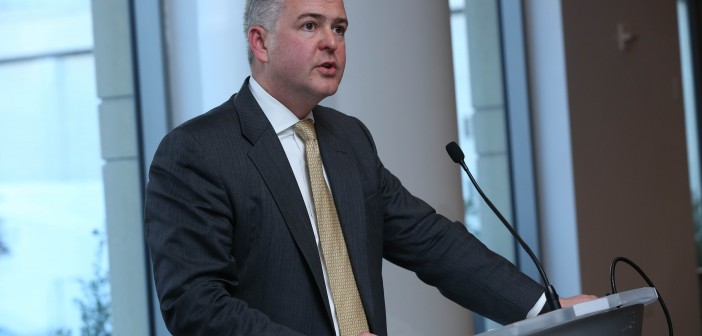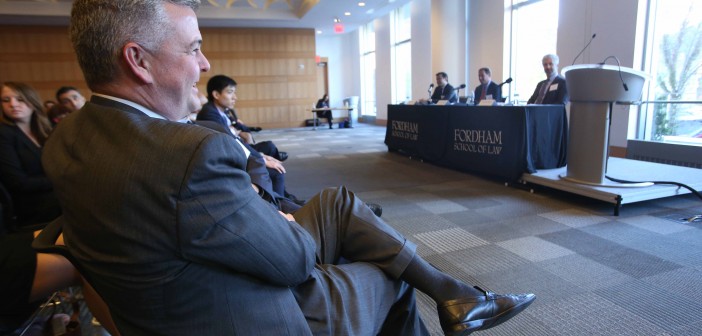Are we ready for the next financial crisis? According to Daniel Gallagher, absolutely not. Gallagher criticized the Dodd-Frank Act, with a bit of humor, in his keynote address at Fordham Journal of Corporate & Financial Law’s Annual Symposium held on October 30, 2015. In his speech he alluded to Congress having a knee-jerk reaction to the financial crisis in its usual fashion. This sort of reaction is not completely uncharacteristic for Congress. In response to numerous financial crises like the Great Depression and those of the late 20th century, Congress was compelled to act. However, Dodd-Frank was historically ground breaking. It was the first genuinely non-bipartisan financial services bill created to react to a financial crisis such as the one of 2008. The Act was rushed, misguided, and ultimately an impediment to real and meaningful financial protection.
Dodd-Frank was heralded as a superhero; it made sure that there would be no more bailouts. The American public thought that they might in fact become safer and more prepared to deal with a financial crisis; instead, the can was kicked down the road. The Act has its heroes and its villains, but one of the most troubling characters created in this comic universe was the one relegated to the role of a minion: the SEC. The Act forced the SEC to shift its resources to issues that were completely unrelated to the financial crisis. The SEC had been given around 100 rulemaking mandates, 20 times the normal amount, resulting in the expenditure of time and expertise on issues that, as Chairman Gallagher says, carry the same value as a wooden nickel. For example, the ratio of CEO compensation to the compensation of median workers in a corporation is an aspect of Dodd-Frank, but it does nothing to stop the causes of the financial crisis. Chairman Gallagher noted that this ratio calculation is an example of one of the most misguided regulations imposed. This ratio is costly and irrelevant with an aim of solely “shaming” corporations and their CEOs. Similarly, the Volker rule, a thoroughly debated and questioned aspect of Dodd-Frank, also directed resources away from dealing with substantive issues.
Chairman Gallagher believes Dodd-Frank is a rushed response to the anger and outrage of politicians and average Americans. The greed of corporations, although a real problem, is merely a symptom and not the real cause of the crisis of 2008. In fact, the 2008 crisis is rooted in a failed housing policy. All great financial crises are preceded by a housing market failure, yet Dodd-Frank does not acknowledge this. Fannie Mae and Freddie Mac, significant elements in the housing market crisis, are not even substantively addressed in the Act. Dodd-Frank and the SECs failed rulemaking process can be broken down into one simple problem: prioritization. The SEC needed to address liquidity issues in the bond market and to modernize the fixed income market, but it instead dealt with conflict minerals. Congress, with its ill-advised Dodd-Frank Act, is worried about CEO compensation in relation to the average worker rather than addressing the failed housing policy. So no, we are not ready for the next financial crisis. In actuality, Dodd-Frank has simply missed the mark.






